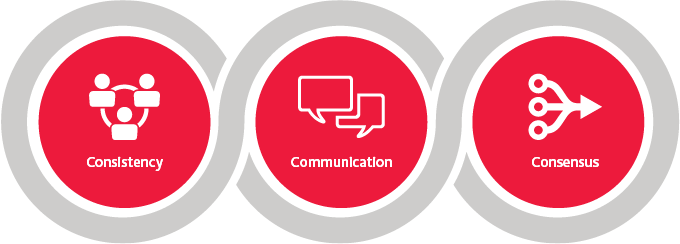A Shared Imperative: ESG Strategy Can Sustain the Family Legacy
Family enterprises stand to benefit from the same type of environmental, social and governance (ESG) strategies that businesses increasingly are adopting. The policies can help create long-term value, enhance resilience, mitigate risk and improve return on investment.
Family enterprises benefit from long-term strategic plans that incorporate ESG to help ensure sustainable wealth transitions across generations and drive meaningful results from impact-focused efforts. Given the particularities of family enterprises, it is critical to establish robust governance, as well as a shared purpose or goal, for ESG programming to succeed.
Thinking Beyond Philanthropy: Strategic ESG Planning
For decades, family wealth planning has incorporated philanthropy as a means to give back and contribute to society. However, these efforts, while significant in terms of monetary contributions, can be based upon the interests of individual family members and disconnected from broader financial and strategic planning. By thinking beyond philanthropy to build a robust, cohesive long-term strategy based on ESG principles, a family enterprise can maximize societal benefits, as well as value creation for years to come.
Among businesses that have adopted ESG policies, many have increased profitability and realized greater returns over time instead of focusing on short-term gains. These enterprises often face fewer material adverse events and are more resilient in times of adversity.
For family enterprises, strategic ESG planning can provide structure and focus to help ensure dollars, efforts and talents are leveraged to maximize impact. To successfully move toward long-term stability and practices that benefit people, the planet and the needs of future generations, ESG planning should be the foundation of an enterprise strategy.
Governance for Family Enterprises & the Three C’s
When implementing an ESG strategy, governance guides all decisions and practices. In the case of family wealth enterprises, governance has traditionally been considered an investment strategy. More robust and comprehensive governance also can provide more effective management structures and greater ability navigate disputes.
In addition to guidance on investment strategies and decisions, effective governance can provide families with tools for positive communication, collective decision-making and processes to implement strategies. Governance that helps align all parties can be summarized by the three C’s: consensus, communication and consistency.
- Consensus: Agree on the family’s vision and shared values, including about ESG strategy and efforts.
- Communication: Gain buy-in from all stakeholders, encourage their participation and reassure them through a regular schedule of communication and interaction.
- Consistency: Follow through on consensus and communication, put those shared values into practice and help ensure decision-making adheres to the family’s mission, as well as its prescribed policies and practices.

When thinking about ESG and a family’s approach to its legacy and impact, governance is especially important because family members may hold divergent views on social issues, environmental challenges and philanthropic activities.
Robust governance practices can help navigate differing perspectives, while also helping a family find common ground for ESG efforts and planning. In accordance with the three C’s, a family should begin by agreeing on a statement of values that can serve as a guidepost for all ESG-related efforts. As a next step, appointing a core family council charged with decision-making can move ESG efforts forward and avoid delays from a lack of consensus.
Frequent communication via routine family meetings to share new thoughts on ESG topics, learnings or standards should be practiced by all family members, in addition to the council. Finally, as a family considers its long-term legacy, maintaining consistency with ESG values and efforts is critical. Governance policies for employment, ownership and liquidity, and a succession plan that includes educating heirs and appointing future leaders, are also best practices.
Shared Purpose for a Sustainable Legacy
When governance has been instituted successfully, it encourages family unity by establishing shared identity and a common vision. As a first step, the statement of values focuses family members on shared principles that guide ESG strategy and all enterprise decisions. It is also important for families to discuss and document a vision for an enterprise’s shared purpose. In addition to the statement of values that underpin the organization, the shared purpose helps identify long-term, cross-generational goals for business and philanthropic activities. As ESG best practices and standards evolve, a shared vision will help new generations navigate these changes and stay consistent.
Looking Forward
In discussions with hundreds of families each year, we’ve found those that employ strategic planning for sustainability, adopt effective governance and have a shared purpose are significantly more likely to achieve their wealth transfer goals and create value for all stakeholders, both in and beyond the family. Ultimately, this approach can help to identify problems, anticipate issues and prevent disputes, allowing business endeavors and philanthropic pursuits to run efficiently and be more impactful.
Looking to build a more sustainable legacy? BDO’s Private Client Services team can help guide your family governance.
SHARE